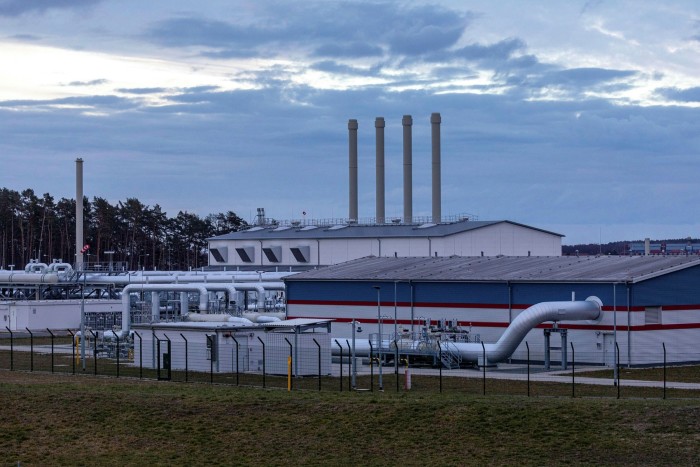
EU warns against fossil fuel ‘backsliding’ as coal replaces Russian gas
The European Commission president warned EU member states not to backtrack on their long-term drive to curb fossil fuel use, saying governments should stay firmly focused on “massive investment in renewables”.
Ursula von der Leyen spoke after Russia’s decision last week to cut pipeline supplies prompted Germany and Austria to boost coal use in a bid to preserve gas stocks. Countries fear more cuts to supplies by Moscow and a possible crisis in energy supplies over winter.
The imminent rise in coal use, even if temporary, has stoked concern that a host of member states could use the crisis to delay the switch to less polluting alternatives.
“We have to make sure that we use this crisis to move forward and not to have a backsliding on the dirty fossil fuels,” she said in an interview. “It’s a fine line, and it’s not determined whether we are going to take the right turn.”
The Netherlands became the latest EU country to announce plans to temporarily increase coal use in order to stave off gas shortages this winter. Rob Jetten, climate and energy minister, said on Monday that the country would change laws that require coal-fired stations to operate at a maximum of 35 per cent of capacity.
Germany and Austria announced the emergency restart of mothballed coal plants on Sunday after Russia cut capacity on the Nord Stream 1 pipeline by 60 per cent last week. The pipeline, which runs through the Baltic Sea to Germany, is one of the main conduits for Russian gas to Europe and officials are concerned Russia could make further supply cuts before winter.
Russia has blamed the capacity cut on technical issues affecting the line that have been exacerbated by western sanctions imposed in response to its invasion of Ukraine. However, it has declined to make up the shortfall through other pipeline routes.
Other EU countries, including Italy, are expected to announce similar plans to Germany. Member states are facing mounting economic pressure because of the energy shortfalls, with benchmark European gas prices up more than 50 per cent in the past week. Gas is at least six times more expensive in the eurozone than it was before the pandemic.
Von der Leyen said the EU has “emergency steps in place” to respond to the threat of falling supply from Russia, including energy savings measures and “prioritising” which industries receive gas. She singled out for praise the German government’s proposals, saying conserving energy was one of the most effective tools the EU has at this time.
The commission president cited figures showing that European consumption of gas had already fallen by 9 per cent in the first quarter, compared with the same period last year. Industry has been reducing consumption partly in response to near-record prices for natural gas. If consumers turned thermostats down by 2C it could make a significant further difference in terms of gas use, she said.
The EU wants to accelerate plans to increase generation from renewable sources while finding ways to diversify its gas supplies such as bringing in seaborne cargoes of liquefied natural gas (LNG) from other regions.
Von der Leyen said the commission was doing everything possible so that the EU will in future be able to say “we made the right choices. We invested massively in renewables.”
Russia’s invasion of Ukraine in February added momentum to plans to rapidly expand renewables capacity, which was already taking shape after the peak of the coronavirus pandemic. Under the “RepowerEU” plan, the bloc not aims to cut reliance on Russian energy, diversify its sources of gas and expand wind and solar capacity.
Von der Leyen highlighted a recent trip to the Eastern Mediterranean where the EU hopes growing gas supplies from the waters of Israel, Cyprus and Egypt may eventually provide additional LNG supplies for Europe.
She also said producers such as Norway and Azerbaijan were “stepping up” by increasing output to give the EU alternatives to Russian gas supplies, which made up as much as 40 per cent of the EU total before the invasion.
But she said the most important pillar of RepowerEU was to greatly increase investment in renewable energy as quickly as possible and streamline planning regulations so projects including wind farms can be set up more quickly.
“We know by now they’re not only good for our climate, but also good for our energy security and independence.”
Stay connected with us on social media platform for instant update click here to join our Twitter, & Facebook
We are now on Telegram. Click here to join our channel (@TechiUpdate) and stay updated with the latest Technology headlines.
For all the latest Education News Click Here
For the latest news and updates, follow us on Google News.


